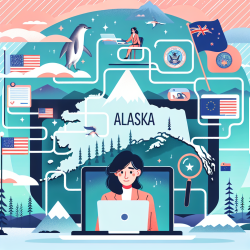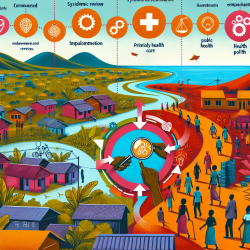Understanding Social Worker Licensing in Alaska
Social work is a vital profession that plays a crucial role in supporting individuals, families, and communities. In Alaska, the licensing of social workers is governed by a set of statutes and regulations to ensure that professionals in this field maintain high standards of practice and ethics. If you are considering a career in social work or are a practicing social worker looking to move to Alaska, understanding these licensing requirements is essential.
Key Aspects of Social Worker Licensing in Alaska
1. Board of Social Work Examiners
The Board of Social Work Examiners is responsible for overseeing the licensing process. The board consists of five members, including licensed baccalaureate, master, and clinical social workers, as well as a public member who has never been licensed as a social worker. The board meets at least twice a year to conduct its duties, which include issuing licenses, adopting regulations, and imposing disciplinary sanctions when necessary.
2. Licensing Requirements
Alaska offers three levels of social work licenses:
- Baccalaureate Social Worker (LBSW): Requires a bachelor's degree in social work from an approved program and successful completion of the licensing examination.
- Master Social Worker (LMSW): Requires a master's degree in social work, professional references, and passing the licensing examination.
- Clinical Social Worker (LCSW): Requires a master's or doctoral degree in social work, a minimum of two years of supervised postgraduate clinical social work experience, professional references, and passing the clinical social work examination.
3. Continuing Education
To maintain licensure, social workers in Alaska must complete continuing education requirements. For the first biennial renewal, licensees must complete 45 hours of education, including specific hours in professional ethics, substance abuse, and cross-cultural education related to Alaska Natives. Subsequent renewals also require 45 hours of continuing education, with a focus on maintaining professional competency.
4. Disciplinary Sanctions
The Board of Social Work Examiners has the authority to impose disciplinary sanctions for various infractions, including securing a license through deceit, engaging in unethical conduct, or practicing while unfit due to incompetence or substance abuse. The board can also impose sanctions for violating any statutes or regulations related to social work practice.
5. Confidentiality and Reporting
Licensed social workers in Alaska must adhere to strict confidentiality guidelines to protect client information. However, they are also required to report incidents of child abuse or neglect and harm to vulnerable adults. Additionally, social workers must disclose any disciplinary actions taken against them in other jurisdictions.
6. Teletherapy Practice
Alaska allows licensed social workers to provide teletherapy services, which include the use of audio, video, or data communications to offer professional services remotely. Teletherapy must adhere to standards of care, confidentiality, and supervision as established by the board.
For more information, please follow this link.










